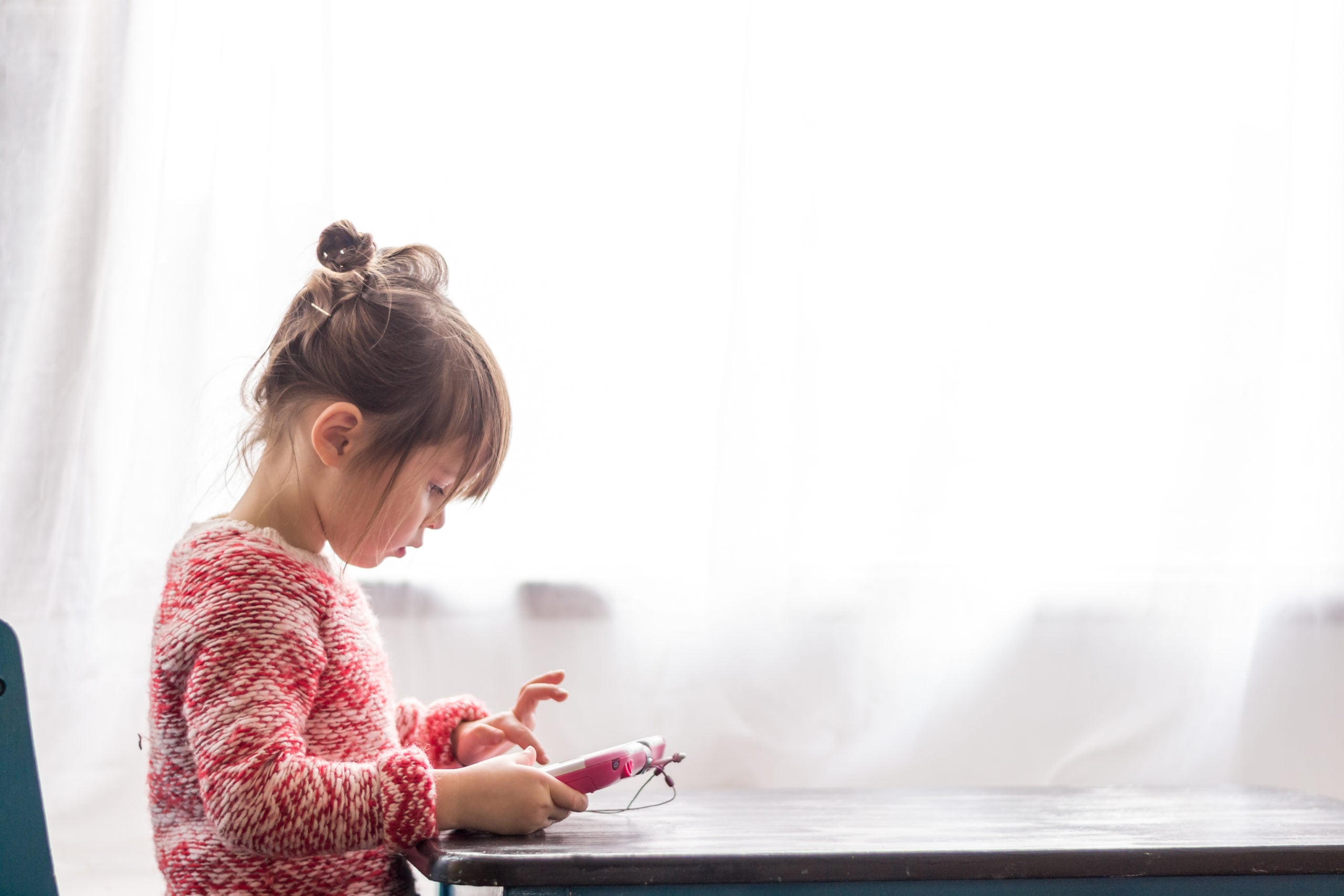The first time my children told me they hated after-school care, I thought they were being overly dramatic. I had been a stay-at-home mom for the first seven years of their lives, but for a brief period, I got a job that asked me to be in an office in Manhattan a few days a week. I was excited about the new career development. My children were less excited about after-school care.
“They yell all the time, and it’s too loud to get our homework done,” they complained every day.
And eventually I saw it, too. The program had no control over the children. It was all chaos and way too much yelling at children instead of speaking to them about bad behavior. They really were in a situation that felt less-than-ideal.
That meant: So was I.
When it comes to the life of a full-time working parent, the child care they employ can make or break the entire operation. Having a trusted nanny or an after-school program in which the children flourish can make the difference between a stress-filled, difficult life and a finely tuned, well-oiled machine that hums through the day.
But for many of us, finding the perfect after-school care arrangement is elusive. It’s easy to see the issue. For children, the school day is long and they want to have fun when it’s over. For parents, the dream is to come home from a productive day at work to children who are happy, fulfilled and done with their homework. But how can these two dreams meet?
Key takeaways
- After-school care can deeply affect a child’s well-being — and a parent’s ability to work. When the environment is chaotic or poorly structured, stress spills over into the entire family.
- Not all after-school struggles mean failure; some require time, communication and small adjustments. Listening closely to your child and working with program staff can often turn a difficult transition into a workable routine.
- If a program truly isn’t a good fit, families have more options than they realize. From alternative programs to shared childcare and flexible schedules, the right solution balances children’s happiness with parents’ practical needs.
Assess the problem
For some children, the thought of after-school care is a nightmare. Full stop. It wouldn’t matter if Mary Poppins descended into their living room. They are going to hate anything and everything that takes them away from home or their vision of how after-school care should go. (My older daughter is a bit like this.) So is it the child or is it the program?
“When a child consistently and persistently states over a consecutive period of time (i.e., every day), you’ll want to begin by learning more about why your child is not happy,” says Texas-based child psychologist Sarah Rees, who works with children of all ages.
Rees suggests sitting down with your child, free of all devices and distractions and just listening.
“Be sure to really listen to the emotions of your child, not just the content,” she says. “Feelings speak louder than words.”
Eventually, the truth will emerge and it will become clear whether the issue is the child or the program.
Signs your child may just need time to adjust
Here are some of the signs, according to Rees, that your child may simply need a period of adjustment:
1. Each day your child fusses about something new, but the complaints decrease over time.
2. Your child may often say, “I hate it” with no real reasoning.
3. The program is listening to your feedback and making changes.
4. There are changes happening at home.
Ways to help your child adjust
1. Talk to the program director
Rees suggests the first place parents go is the program itself.
“Parents should be looking for an environment where they feel warm and welcomed,” Rees says. “A clean, well-organized and trained staff in child development and first-aid safety are important. Parents will also want to look for a variety of stations of activities for their child.”
The simplest solution is, of course, that the program director is willing to make changes that will better accommodate your child, says Rees.
“After-school programs can work to implement a solid structure and routine for kids,” Rees says. “Kids like choices, especially after school, but they still need routines. Allow them to choose what activity they want to start with, then provide them a certain amount of time before they move on to the next activity. These activities need to be easy, fun and interactive, not like school. Kids are often so tired of being told what to do all day, they just want a little bit of a break. There is a balance between too much structure and too little.”
2. Bring in comforts of home
For younger children, the problem could be as simple as homesickness, says Katie Ziskin, a Connecticut-based child psychologist who works with adolescents and children.
“See what you can do to make the environment more familiar to your child,” she says. “Bring their favorite snack, a fuzzy stuffed animal from home or something else that’s familiar and safe to help them transition into the after-school care program.”
3. Help your child see the benefit
For Crystal Brown, of St. Antonio, Texas, her two sons’ misery took her by surprise.
“When we moved from Arizona to Texas this summer, I knew the move would be a transition for our kids,” Brown says. “What I didn’t expect was that they would have trouble adjusting to their after-school program. They have been in after-school programs since they started school, so I figured it would be an easy transition since they would be going into the first and fourth grades.”
Unfortunately, it wasn’t. Once she got to the bottom of the issue, she realized it wasn’t the program so much as the change.
“Unlike the previous programs that gave them lots of time to play with friends, the new program is a lot more structured,” Brown says. “What we do is ask them to finish as much homework as possible at school so when they get home, they can do more fun stuff.”
Once Brown’s sons saw the way they could use the structure to their advantage, they stopped hating it so much.
Signs it may be time to find an alternative program
According to Rees, these are the signs it’s time to make a bigger change:
1. Your child consistently complains about the same thing for months.
2. Your child is acting out aggressively in after-school care, but not other environments.
3. The program is not flexible and/or not willing to implement changes.
4. Talking back and other rude behaviors get worse over time.
Alternatives to the traditional after-school program
1. Look outside the school district
Many towns have after-school options that go beyond just the gym in the elementary school. Emily Roy’s second-grade daughter takes a bus after school from her small town in New Hampshire to a local fitness club, where she can do all kinds of sports activities and play before her parents pick her up.
“What I like about it is that it has widened her circle of friends as other schools participate,” says Roy. “Also they cover snow days if we need it.”
Her daughter loves the program, which frees up mom and dad to focus on their work all day.
2. Allow older children to help with the search
Older children can be enlisted to help with a search for a new program. Have them ask around and do some Internet sleuthing. When kids feel more involved in the process, they are more likely to be happy, says Rees. Taking responsibility for their own happiness is a great life lesson for them and a great way to take at least a portion of it off mom and dad’s plate.
Amy Kuras, of Michigan, felt terrible when her 12-year-old daughter hated her after-school program. But it was set and there was nothing she could do. At least that year. The next year, she enlisted her daughter’s help and found a solution that made everyone happy.
“Once she turned 13, she found out she could go to the big main library across the street, which had an amazing teen center,” Kuras says.
After that, she was happy. And mom was even happier.
3. Work with other families
Marisa Birkmeier, of Washington, D.C., pooled resources with some other parents when her after-school care didn’t work out. One nanny was cost prohibitive, but sharing one nanny between a few families proved more affordable and the children got to play with their good friends, to boot. She also shared duties with other parents who pooled together to walk a group of children to more amenable after-school activities like ice skating and gymnastics.
“It takes a tribe, and for this I don’t mean extended family, since we don’t have any locally,” Birkmeier says.
Crystal Brown’s husband was able to rearrange his schedule to better accommodate once-a-week playdates for her sons rather than five nights a week in after-care. Some days he has to be home, but on the days the playdate is elsewhere, they just pick their sons up after work.
As for me, my children only did their after-school program for a few months before I ended up leaving that job and working from home, allowing them to come back home every day after school. We hired a part-time nanny on some days, and I covered the rest. It’s the solution that worked for our family. But it’s certainly not the only one. With a little finagling, there is a solution that will help everyone — children and parents — work to their full potential.





